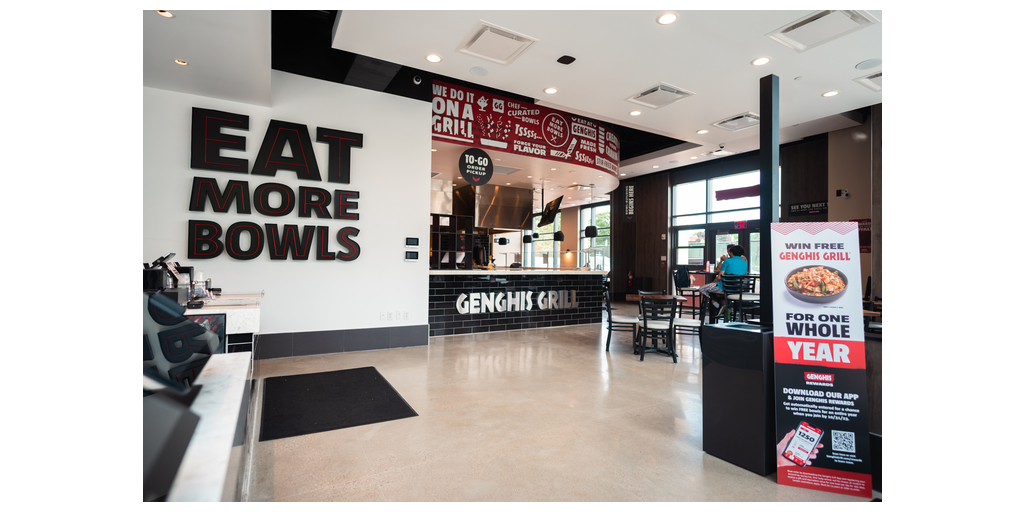A Pivotal Moment Regarding Sustainability for Restaurants
4 Min Read By MRM Staff
It’s no great surprise to say QSR and fast casual restaurants can be considered among the most energy-intensive commercial building types making it increasingly challenging for operators to balance the goals of efficiency, profitability and sustainability.
In order to reduce energy consumption and their carbon footprint in addition to realize savings, Craveworthy Brands is partnering with Budderfly. The company's Energy as a Service (EaaS) holistic offering is designed to improve the overall building environment, including air quality, functionality, aesthetics, and comfort for customers and employees. as well as offer real-time monitoring and reporting capabilities so that restaurant operators can access data insights about their energy usage.
Modern Restaurant Management (MRM) magazine talked all things sustainability with Gregg Majewski, CEO and Founder of Craveworthy Brands.
Why is the restaurant industry at a pivotal moment regarding sustainability?
The restaurant industry is at a pivotal moment regarding sustainability due to several factors. Consumers are increasingly conscious and supportive of environmental issues and are hoping to see more sustainable practices from businesses. There is also a growing pressure from regulatory bodies to reduce carbon footprints and adopt eco-friendly practices. Sustainability initiatives present opportunities for cost savings and operational efficiencies within the ecosystem, making them attractive for businesses looking to improve their bottom line while minimizing environmental impact.
Tell me about Craveworthy’s partnership with Budderfly—how did it come about and what are the goals?What is Craveworthy learning along the way and changing how they do things?
- Craveworthy Brands’ partnership with premier sustainability partner for businesses with repeatable footprints, Budderfly is a testament to our commitment to driving growth and success for our restaurant brands while also prioritizing sustainability initiatives. The genesis of this collaboration lies in our proactive approach to addressing the challenges of energy management and environmental stewardship as we continue to expand our portfolio of brands nationwide. When presented with Budderfly's innovative Energy as a Service (EaaS) offering, we recognized the opportunity to not only optimize energy consumption but also to pioneer a new era of sustainability within the industry.
- We have partnered with Budderfly to implement their EaaS offering, starting with 21 corporate-owned and 11 franchise locations of our Asian stir-fry bowl concept Genghis Grill. This collaboration truly highlights the scalability and impact of Budderfly's solution, with each site expected to achieve a remarkable 30 percent reduction in energy usage. The cost-saving and ecological benefits stemming from this partnership are poised to set a new industry benchmark, benefiting our current locations and our future expansion plans, totaling approximately 200 restaurant locations.
- With Budderfly, Craveworthy will be able to install, monitor and manage a combination of patented technologies and high-efficiency equipment including HVACs, LED lighting, refrigeration controls, water conservation systems such as smart valves, low-flow toilets and foot pedal sinks, smart panels, sensors and more – at no upfront cost. Budderfly’s in-house expertise and growing tech-enabled capabilities will drive maximized and long-term positive outcomes for the Craveworthy Brands’ restaurant locations over a 10-year period.
There's a myth that sustainable practices cost more—Is that a myth and, if so, what can be done to raise awareness of the economic viability of sustainable practices?
The myth that sustainable practices cost more is just that—a myth. In fact, sustainable practices often lead to cost savings in the long run. By investing in energy-efficient equipment and tech-enabled facilities, businesses can reduce utility bills and operational expenses over time. Raising awareness of the economic viability of sustainable practices involves educating stakeholders about the potential cost savings and long-term benefits associated with driving these initiatives.
How important is the connection between technology and sustainability? And how will that connection evolve in the coming years?
The connection between technology and sustainability is crucial and will continue to rapidly evolve in the coming years. Technology enables businesses to monitor and optimize energy usage efficiently, identify areas for improvement and implement innovative solutions to reduce harmful environmental impact. As technology advances, we can expect to see even more sophisticated tools and systems that further enhance sustainability efforts across various industries.
How can sustainable practices improve customer satisfaction?
- Sustainable practices have the remarkable ability to enhance customer satisfaction by highlighting the business’ commitment to make its local community a better place. By aligning with the values and preferences of environmentally conscious consumers, sustainable initiatives resonate deeply with a growing segment of the market.
- When customers perceive a brand as committed to sustainability, it fosters a sense of trust and affinity towards the brand. This positive perception not only strengthens brand loyalty but also cultivates a sense of pride and satisfaction among guests who choose to support environmentally responsible businesses.
- Guests are increasingly seeking out brands that prioritize sustainability, and by meeting these expectations, businesses can differentiate themselves in a competitive market and build lasting relationships with their customer base.
In what ways can sustainable practices improve operational efficiencies and have cost savings?
Sustainable practices improve operational efficiencies and cost savings by reducing energy consumption, allowing businesses to lower utility bills and operating expenses. Also, green technologies often require less maintenance and have longer lifespans, reducing the need for frequent replacements and repairs. Streamlined operations and reduced waste contribute to overall cost savings and improved profitability.
How important is it for brands to be leaders in the sustainability conversation?
It is essential for brands to become leaders in the sustainability conversation as this topic becomes a priority for a resilient future. All brands, especially now, have a responsibility to their local communities, consumers and most importantly, the planet, to minimize their environmental footprint and contribute to a more sustainable community. By leading by example and implementing innovative initiatives, brands can inspire others to follow suit and drive positive change and impact within the food service industry.

